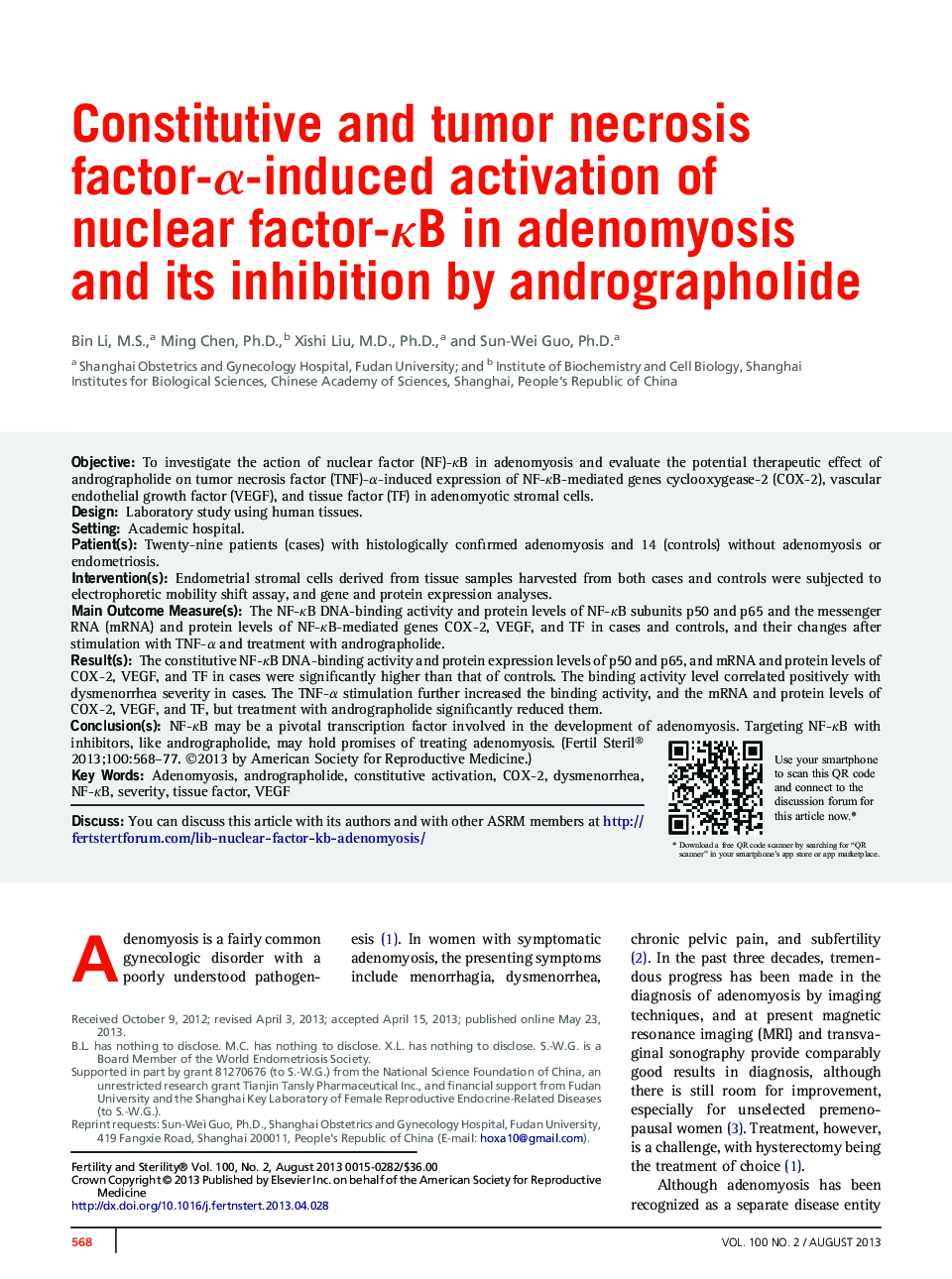| Article ID | Journal | Published Year | Pages | File Type |
|---|---|---|---|---|
| 3931639 | Fertility and Sterility | 2013 | 10 Pages |
ObjectiveTo investigate the action of nuclear factor (NF)-κB in adenomyosis and evaluate the potential therapeutic effect of andrographolide on tumor necrosis factor (TNF)-α-induced expression of NF-κB-mediated genes cyclooxygease-2 (COX-2), vascular endothelial growth factor (VEGF), and tissue factor (TF) in adenomyotic stromal cells.DesignLaboratory study using human tissues.SettingAcademic hospital.Patient(s)Twenty-nine patients (cases) with histologically confirmed adenomyosis and 14 (controls) without adenomyosis or endometriosis.Intervention(s)Endometrial stromal cells derived from tissue samples harvested from both cases and controls were subjected to electrophoretic mobility shift assay, and gene and protein expression analyses.Main Outcome Measure(s)The NF-κB DNA-binding activity and protein levels of NF-κB subunits p50 and p65 and the messenger RNA (mRNA) and protein levels of NF-κB-mediated genes COX-2, VEGF, and TF in cases and controls, and their changes after stimulation with TNF-α and treatment with andrographolide.Result(s)The constitutive NF-κB DNA-binding activity and protein expression levels of p50 and p65, and mRNA and protein levels of COX-2, VEGF, and TF in cases were significantly higher than that of controls. The binding activity level correlated positively with dysmenorrhea severity in cases. The TNF-α stimulation further increased the binding activity, and the mRNA and protein levels of COX-2, VEGF, and TF, but treatment with andrographolide significantly reduced them.Conclusion(s)NF-κB may be a pivotal transcription factor involved in the development of adenomyosis. Targeting NF-κB with inhibitors, like andrographolide, may hold promises of treating adenomyosis.
